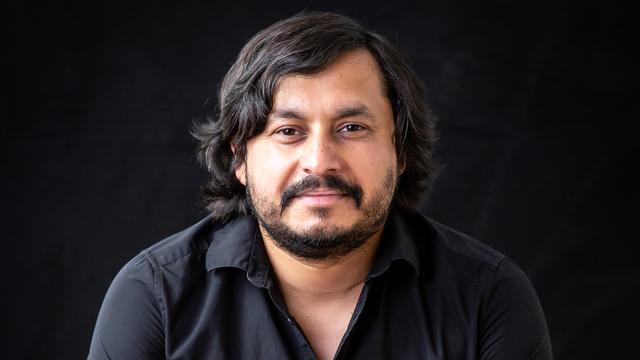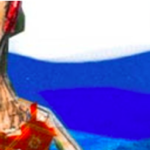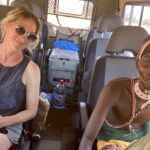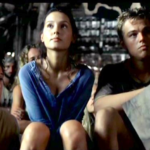Tharik Hussain is an author and travel writer specializing in Muslim heritage and culture. His debut book, Minarets in the Mountains; A Journey into Muslim Europe won the British Guild of Travel Writers’ Adele Evans Award for Travel Narrative Book of the Year. Hussain is also a guidebook author for Lonely Planet, and has written guides to Saudi Arabia, Bahrain, Thailand, London and Britain. He has produced for the BBC World Service on America’s earliest mosques, and been published by the likes of the BBC, National Geographic Traveller, The Guardian, Al Jazeera and The Sunday Telegraph. Hussain is also a fellow at the Centre for Religion and Heritage at the University of Groningen, Netherlands and the Royal Geographical Society in London, and an advisor to the Institute of Islamic Art Thailand.
How did you get started traveling?
I come from a family of immigrants, so you could say, traveling is something we have always done – the only difference of course is that when you are an immigrant, leaving behind a country recovering from a devastating war and suffering from extreme poverty, it’s not through choice; so my earliest experiences of traveling were always to go ‘back home’, to Bangladesh, to the place that I had come from, to see family I had left behind. Whilst it was fun and exciting, it was also painful and confusing and very different to the travel I now do to write.
How did you get started writing?
I began my writing career at a very local newspaper in the east end of London, from there I moved on to what was then the country’s largest Asian newspaper, Eastern Eye, that’s where I ‘cut my teeth’ as a professional journalist. That was also where I remember writing my first travel piece, on Morocco if I remember correctly. Thankfully this was pre-internet (before it was any good that is), so the piece is unlikely to ever see the light of day again!
What do you consider your first “break” as a writer?
I would say my first real ‘break’ was a piece I wrote following a trip around the Baltic states, for the BBC’s News magazine about the region’s forgotten 600-year-old Muslim communities. That article received huge attention online and across social media; it put me on the radar of a lot of people and led to a radio commission for a two-part BBC World Service documentary called America’s Mosques – one of the earliest of which had been built by Baltic Muslims that migrated to the USA.
As a traveler and fact/story gatherer, what is your biggest challenge on the road?
I think it has to be time. Time is essential for a number of things; to think, plan and contemplate but also to adjust to a place, to become familiar with it in a way only time allows, and to give the people you wish to speak to and engage with the time and courtesy they deserve. Often this is impossible on the whirlwind visits we are forced to make.
What is your biggest challenge in the research and writing process?
I often research obscure Muslim travelers from the distant past, so one of my biggest challenges is language as all of these writers wrote in classical eastern languages and this means, usually, I am wholly reliant on the amazing work of translators.
What is your biggest challenge from a business standpoint?
I think every writer – even the most successful – will tell you it is money. All the latest research about the earnings of writers and authors sadly reinforces this. As a result, few of us from less-privileged backgrounds are in a position to sustain a career in the field; I don’t need to tell you what that does for diversity in writing.
Have you ever done other work to make ends meet?
After giving journalism a go, I actually went into post-16 teaching and so, I have always had that as a means to make ends meet. Without it, quite frankly, there is no way I could have launched a career in writing of any note.
What travel authors or books might you recommend and/or have influenced you?
I think given the current discussions around travel writing and the impact it has on the way we see the world, every travel writer should read something by Edward Said – ideally his book Orientalism – but if not, maybe some of his articles where he discusses the ideas from the book.
As for travel authors; I was massively influenced by some of William Dalrymple’s travel books and those by Tim Mackintosh-Smith where he follows in the footsteps of the great Muslim traveller, Ibn Battuta.
What advice and/or warnings would you give to someone who is considering going into travel writing?
Prepare for a life of poverty? Jokes aside, it is a real challenge to make a livable income from travel writing alone. I would therefore suggest they either develop another source of income to supplement things or try and get a full time job as staff on a publication.
I think every new travel writer should become familiar with the current debates around the need to decolonize travel writing and why a diversity of lens is so important within the genre.
What is the biggest reward of life as a travel writer?
Besides the obvious privilege of exploring spectacular places across the globe, for me it is the joy of being able to investigate fascinating stories; learn new histories that have never been told and help to reshape the way a place is perceived.





